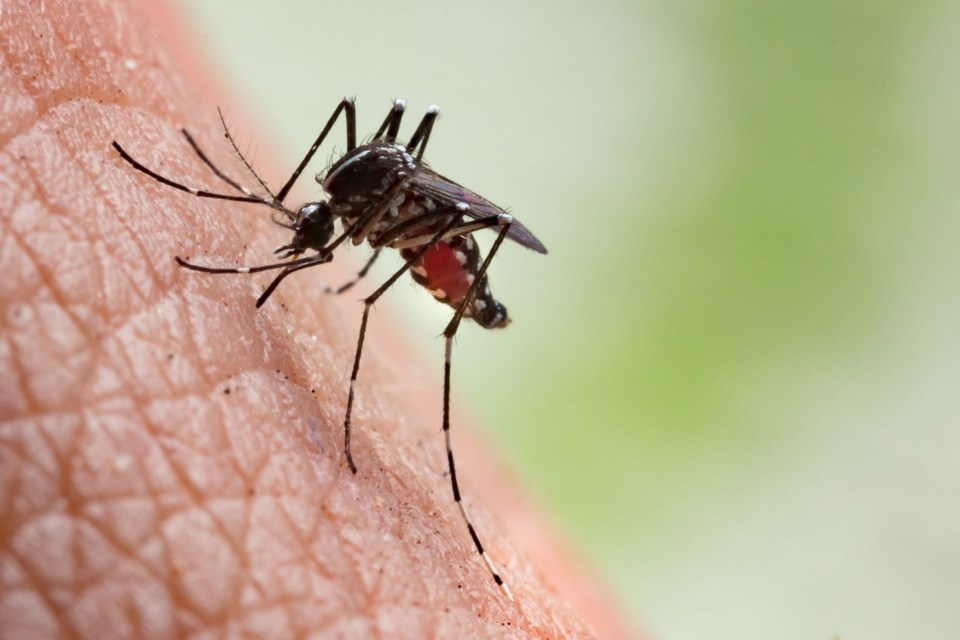North Bay Parry Sound District Health Unit is warning residents to protect themselves from mosquito bites after mosquitos tested positive for a pair of viruses.
The Health Unit routinely monitors mosquito pools in various locations across the district and in September, two mosquito pools have tested positive with a virus. One is the West Nile Virus (WNV), and another carried the Eastern Equine Encephalitis Virus (EEE).
"In both cases, the mosquitoes were from pools located within the District of Parry Sound. No human cases have been reported in the Health Unit district," says a news release.
It has been approximately seven years since a mosquito tested positive for WNV in the Health Unit district, and 10 years since a mosquito tested positive for the EEE virus. Mosquitoes acquire viruses such as WNV and EEE by feeding on infected birds. The virus is spread to humans and other mammals through the bite of an infected mosquito. It is not spread from other animals.
The Health Unit recommends that people use simple personal protective measures to reduce the risk of illness due to bites from infected mosquitoes:
- Take extra care when spending time outdoors between dusk and dawn, when mosquitoes are most active.
- Eliminate any standing water so mosquitoes cannot breed.
- Wear light-coloured clothing, including long-sleeves, pants, socks and shoes.
- Apply insect repellent containing DEET sparingly to clothing and exposed skin areas, following recommendations by Health Canada and the Canadian Paediatric Society.
- Install or repair window and door screens so that mosquitoes cannot get indoors.
Symptoms of WNV usually appear within two to 15 days after infection. Most individuals (70% to 80%) infected with WNV have no symptoms. Mild symptoms of WNV can include fever, headache, body aches, a mild rash, and swollen lymph nodes. Serious symptoms can include rapid onset of a severe headache, high fever, stiff neck, nausea or vomiting, confusion, and paralysis. Some severe cases can be fatal.
Symptoms of the EEE virus usually appear four to 10 days after infection, and some individuals may not develop symptoms. Mild symptoms include flu-like illness with fever, headache, a stiff neck, muscle aches, and confusion. Severe cases include swelling of the brain (encephalitis) and can lead to coma, convulsions, and death.
If you experience a sudden onset of any symptoms, seek medical attention. While there is no treatment or vaccine for WNV or EEE, symptoms can be treated.



